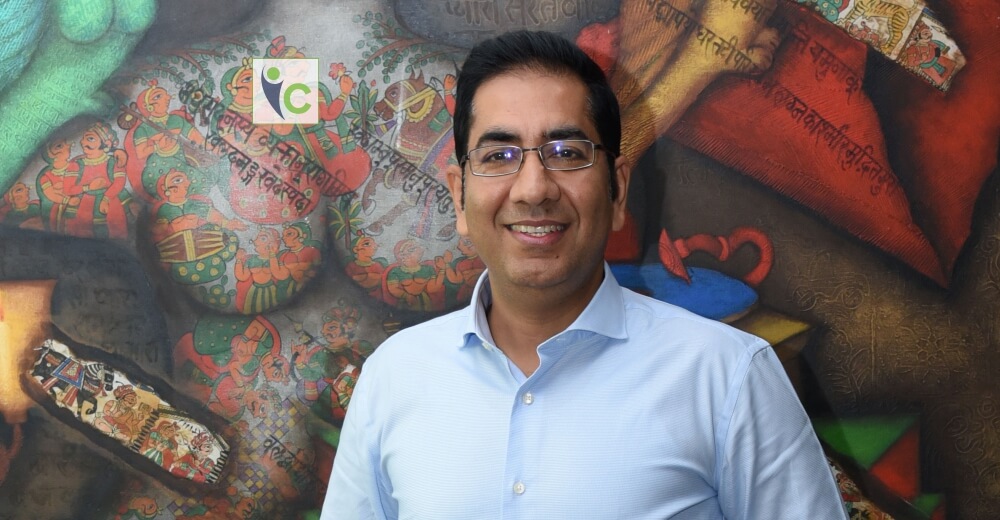The COVID-19 pandemic and resultant lockdown changed the face of every industry. While the healthcare sector has been more in demand, in-proximity examination for non-COVID health issues almost came to standstill, creating a huge void to be filled with the aid of digital health and health apps.
However, Liz Ashall-Payne, CEO of ORCHA had envisioned such a solution 25 years ago while working as a speech and language therapist in complex paediatric care in NHS. The fact that Liz could see only one patient at a time made her frustrated, further hoping for innovation to provide quality and efficiency in this field. “Long before laptops and iPhones were invented, I was interested in stripping out waste in a pathway and making sure that we could see more patients.” Liz shared.
The technological advancements in the past decade led to emerging digital health and health apps. Ambitious to disrupt the healthcare space with technology Liz identified the scalability of these apps as they can be given to one person or one million people.
However, Liz observed that majority of consumers and health care providers were either unaware of these solutions or didn’t know how to access them. Furthermore, trust in effectiveness and safety was a huge challenge. “Irrespective of the country or region people faced the same barriers everywhere,” Liz said.
To remove those barriers and help individuals and health professionals to find the precise health apps, Liz, along with former NHS Chief Executive, founded Organisation for the Review of Care and Health Apps (ORCHA) in 2015.
The following interview gives us a glimpse of the passion Liz holds towards making healthcare more accessible and narrates how ORCHA has been instrumental in achieving her dream.
Tell us more about ORCHA.
Our mission is to distribute high-quality digital health solutions to people who need them. Only 20% of health apps on the open market meet regulatory requirements and every day five million people download one. So, the size of the problem is massive.
To find the ones that are high quality, we review every app against 350+ measures. This includes ensuring if the app meets standards such as data security, medical device regulations, GDPR, OWASP guidelines, and the NICE evidence standards framework. On top of that, we add additional checks, depending on our customer’s needs. Often there may be criteria need to be added specific to a country, such as language needs or local standards.
Also, we create digital libraries, hosted nationally, regionally, locally, or organisationally. These libraries are basically highly sophisticated search engines that allow users to find a long list of good products and filter according to their preferences.
Healthcare professionals can also use the library as a formulary. Ever been to the doctor and they’ve used a little book before prescribing drugs? Well, ORCHA is the equivalent for digital health. Doctors use our libraries to find the right digital health solution and with our Pro Accounts, can accurately recommend the app by a text message or email to a patient.
From a business leadership perspective, what is your opinion on the impact of the current pandemic on the health and wellness sector?
Covid-19 has encouraged a massive upsurge in the use of health apps. Using our ORCHA app libraries, thousands of GPs and health teams are recommending apps now more than ever. And with the health and caregiving sector under such pressure, consumers are reaching for their phones to find independent support. With four to five million download every day, there has been a 25% rise in health app downloads.
Our recent Covid-19: Digital Health Trends report showed the increase in health app downloads for certain health conditions. Apps supporting those with mental health concerns, for example, saw a 200% increase in downloads during 2020.
What is your opinion on the necessity for healthcare service providers to improve their offerings, especially when it comes to catering to the ever-evolving patient needs and preferences?
The key to this is choice. One size will not fit all. In the world of digital health, one health app will never meet everyone’s needs. Take anxiety as a condition, for example. You will need a range of solutions, with the healthcare provider being familiar with the apps on offer and confident that he or she is incorporating a quality app, which can be trusted, into a care pathway. Children, teens, adults, people with additional needs; every individual need to be considered. Also, digital isn’t for everyone – the choice is critical!
What impact did the COVID-19 pandemic have on ORCHA’s daily operations? What efforts did you take to sustain the business and ensure the safety of your employees at the same time?
We have offices in the North West of England, London, and the Netherlands, and all our employees have worked from home throughout the lockdowns. Our operations have continued as normal, with our flexible and tech-savvy workforce collaborating via project management software and video conferencing.
In your opinion, what could be the future of the healthcare services sector post the pandemic? And how are you strategizing to scale your operations and offerings to be prepared for that future?
The face-to-face treatment came to almost a complete standstill during the initial lockdown, and so we saw a rush towards digital health. Services had to adapt to this new change. Patients and professionals started to use virtual assessments than before. Attend Anywhere, Zoom, Teams, and Hangouts have become mainstream communication tools. Apps such as Sleepio, Calm, and Couch to 5k became household brands.
We expect that 2021 and 2022 will see a real consolidation in the use of digital healthcare. Early adopters in UK health services have been health professionals working in mental health, weight management, and diabetes management. We predict that new sectors will come on board: maternity, women’s health services, cancer, cardiovascular, and stroke services. And this digital revolution is happening globally.
We have a large-scale recruitment drive planned at ORCHA to cope with this rapid rise in demand, including roles in the US and mainland Europe.
As an established leader, what would be your advice to the budding entrepreneurs and enthusiasts aspiring to venture into the healthcare services sector?
This exciting, vibrant sector thrives on new talent. To succeed, you need to understand the problem from everyone’s perspective and get obsessed with it. The solution will adapt and change over time, but the problem will not. There will be entrepreneurs out there who have the answers.









